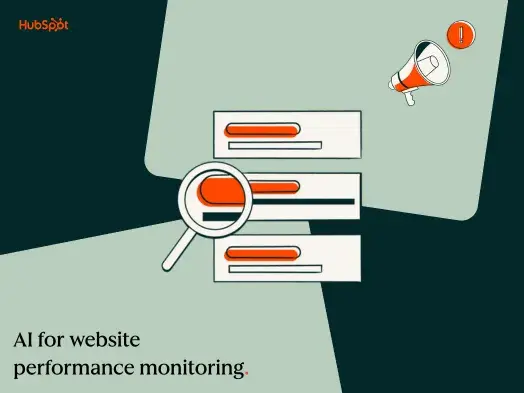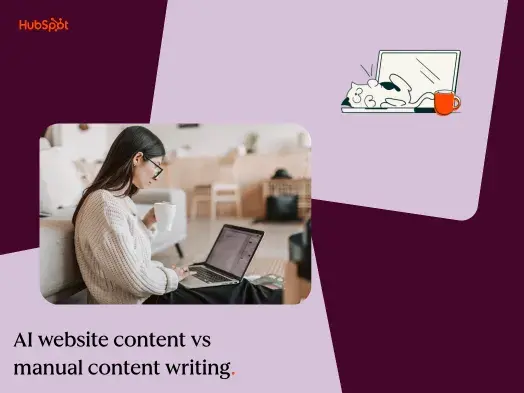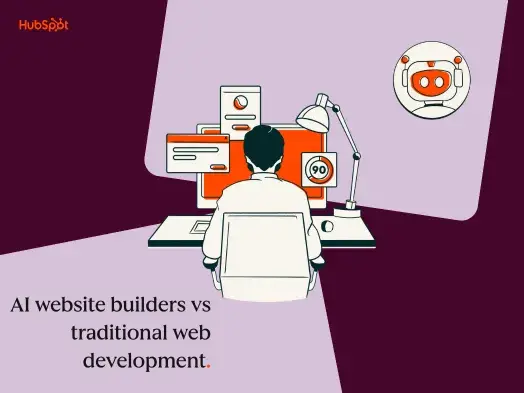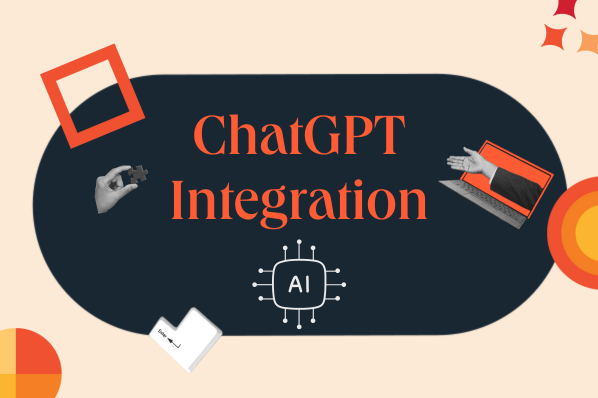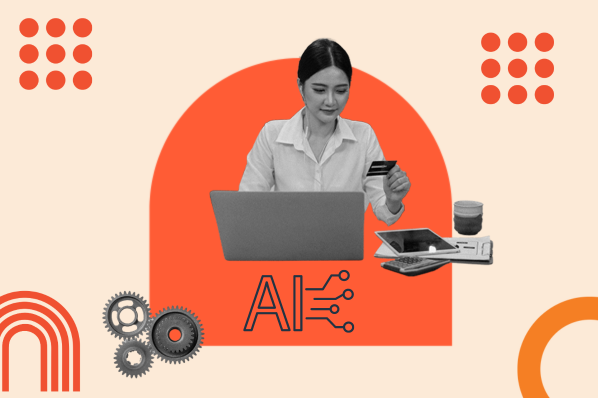If there's one thing you should know about the web strategy team at HubSpot, it's that its members are advocates of adapting to the changing digital landscape. Delivering delightful experiences to the user has always been paramount to this team's mission. Still, how the group achieves this is evolving — especially in the last year with the widespread adoption of AI.
We chatted with Neda Stoll, Senior Director of Web Strategy at HubSpot, to dive deeper into how one team at HubSpot is using AI to create even more engaging experiences for visitors landing on HubSpot's website.
How is the team currently using AI?
For context, the web strategy team creates and maintains the HubSpot website. "We do everything that's related to our website," shares Stoll. "We are a global team, so we're always thinking global first. I also manage the regional websites."
According to Stoll, the team is already leveraging AI to provide better user experiences. However, it plans on continuing to infuse AI into the website to create a more engaging experience for visitors that arrive on the site. (If you need more context about how AI works, we've got you covered there.)
"We have started, and we're going to be ramping up how we're going to be leveraging the power of AI on the website," says Stoll. "We are leveraging genAI in our chat to provide conversational answers. That is something that we're doing on our knowledge base today. And we are working on expanding that to some of the AI content that we have. We have lots of news and information about the latest products and features that HubSpot is working on around AI. We'll implement that genAI chat within those experiences on our core website. That's the piece that's a work in progress."
How is the team planning on achieving this? By training the bot to give visitors the relevant answers they seek. "It'll get smarter and smarter as time goes by, as it learns the patterns of why people are visiting and what they're looking for," says Stoll.
The overall impact of implementing AI on the website? A better user experience for site visitors who won't have to hunt around for the answers they're seeking. Instead, they can interact with the chatbot and easily access the necessary tools. Furthermore, the experience visitors have on the website will be more personalized, which is a huge perk.
"Personalization is going to be a big part of how we leverage AI," says Stoll. "As we learn and know more about the visitor, we'll be able to personalize their web experience based on their needs."
Ultimately, the use of AI for the web strategy team is all working towards one common achievement: providing an exceptional user experience. "The number one goal that we have on the website is to provide our customers and prospects with an incredible website experience and get them to the right content and software they're looking for," says Stoll. "All of our efforts around implementing AI capabilities will be in support of that enhanced user experience."
How has implementing AI tools benefitted the web strategy?
For the web strategy team, two main benefits are associated with implementing AI. The first benefit is internal, and the second is external-facing. Let's dive right into how the internal team benefits from using AI — and how yours can, too, if your web strategy team decides to move forward with leveraging AI.
"At HubSpot, we have a culture of, we test, and we learn, and we iterate," shares Stoll. Because of that, incorporating AI on the website moving forward will be a work in progress, and strategy will progress and change as more information is available. "It's always going to be a learning process for us because nobody has a crystal ball," says Stoll. She adds, "I think one of the areas that we are most excited about is [that] AI will make us a lot more efficient. [It will] give us the ability to move faster when it comes to actually optimizing our content, our visuals, and our images. And I think that's one thing that I'm super excited about…[we can do that] at a higher speed than what we have in the past."
While using AI has allowed the web strategy team to move more efficiently to implement changes to the site, there are other pros associated with leveraging AI. "I think this is going to hopefully drive higher engagement," says Stoll. "Site visitors [will] be able to get answers quicker. Hopefully, they won't have to go back and forth between pages. It might actually reduce the overall click rate. But I think we'll be able to get our visitors to the right information and content faster because we'll be able to provide those answers in a quicker manner and get them to where they need to go." (Psst: If you want to learn more about the AI tools HubSpot currently offers to streamline your productivity, you can check them out here.)
Have there been any drawbacks for the web strategy team associated with using AI?
If you have concerns about implementing AI on your website, Stoll reveals that she doesn't believe you should be concerned. "I don't think there are any drawbacks," says Stoll. "I believe it's going to be a way of life. But one thing we have to be really mindful of is [that] we want to make sure we test everything so…every experience we change is really improving. And so it's just something that we're very, very cautious with. We are not going to make drastic, big changes all at once. And so things will be ruled out in a very thoughtful way."
Leverage AI on your website.
Now that you know how our web strategy team leverages AI, you can decide how to implement it on your website. Enjoy using AI to create more delightful, personalized, and efficient user experiences for your site visitors!
Artificial Intelligence


.png?height=613&width=1920)
